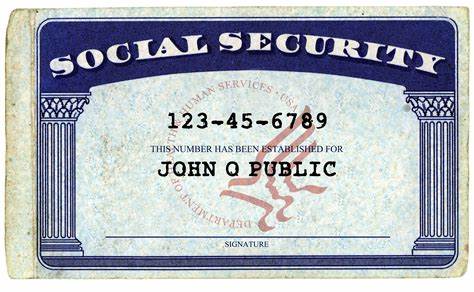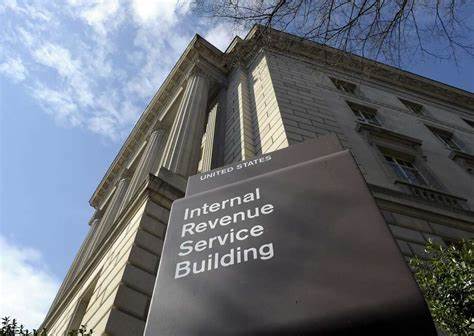How Much Can I Earn While On Social Security?
Everyday life in America is not cheap and many people are struggling, especially seniors. They worked for years of their lives and maybe lived a comfortable life on their salaries. They have now retired and thanks to their payments into Social Security they receive a pension.
This pension however is only a percentage of what they made while working, Some people may be able to survive on this but those with perhaps a limited work history or who were low income during their working life do not have enough for their needs.
With this decrease in income some seniors will have to return to the workforce to make enough extra money for their needs. But there are limits on how much you can earn while still claiming Social Security benefits. In this post we will discuss the rules around working while claiming Social Security benefits.
What Is Social Security?
The Social Security Administration (SSA) is an independent government agency which is part of the U.S. federal government. This agency administers Social Security payments for retirement, disability and survivor benefits.

In order to qualify for these payments workers in the United States contribute to a central fund through Social Security taxes. These taxes are taken from an individual's paychecks based on the person's Social Security number. This nine digit Social Security number uniquely identifies an individual and also authorizes them to hold legal employment in the United States.
Most of the Social Security benefits programs require an individual to have paid into this tax fund or to be the spouse of someone who has. There are however some programs that do not require having paid into the system such as the Supplemental Security Income program.
How Much Can You Earn While Claiming Social Security?
The Social Security Administration is understanding when it comes to working while claiming benefits but they do place restrictions. When it comes to maximum earning limits while receiving retirement benefits it is age dependent.
Those who are over 62 years old but under 70 are considered under full retirement age. These individuals while claiming Social Security in 2022 can earn up to $19,560. Every dollar earned above this amount will see two dollars subtracted from your Social Security benefits.

People who are about to reach full retirement age are allowed to earn more during the part of the year prior to their 70th birthday. In 2022 the maximum earnings limit for those who are about to reach full retirement age is $51,960 a year. The penalties for over earning however equate to losing $3 in benefit payments for each $1 earned over the limit.
Once an individual reaches the age of 70 all earnings caps are removed. This means they can earn their full benefits and as much other income as they so wish.
How Does Working After Retirement Affect Your Social Security Benefits?
Working beyond retirement age is becoming more and more common as the years go by. This is because the average Social Security recipient earns around $1,543 a month. Anyone who has to rent it has a mortgage will instantly see that most of this could be spent on keeping the roof over their heads and paying a few utilities.
Basically speaking, Social Security payments for most Americans do not even reach the Federal poverty limit. As a result Social Security beneficiaries may apply for their benefits but stay on at their jobs. Others may struggle through for a while before having to reenter the workforce at least part time.
As mentioned the Social Security Administration fully understands this might be necessary so they have no issues with retirees returning to work if they have to. There are limits however and exceeding limits can cause you problems.

Those who took early retirement between ages 62 – 69 for example are only allowed to earn a maximum of $19,560 a year before penalties come into effect. If you exceed this limit you will lose $2 for every $1 you exceed the annual earnings limit.
If for example you earned $100 above the annual limit you would lose $200 from your annual Social Security benefits. It is therefore not worth exceeding the annual limit as this will actually lose you at least $100.
In the months of the year prior to you turning 70 your earnings limit increases to $51,960. So if your birthday is in July then from January to June of that year you can earn this higher amount without penalties from Social Security. It should be noted however that you lose $3 for every $1 you earn over the maximum amount.
This would mean earning $100 over the limit would see $300 subtracted from your annual Social Security benefits. Essentially you would lose at least $200 to work beyond your allowed earning limit so very much not worth doing.
As soon as you turn 70 years of age however all of these limits are lifted and you can earn as much as you like. There will be no penalties against your Social Security benefits and you claim the full amount along with whatever you earn from your job.
What Is the Full Retirement Age?
I have mentioned the full retirement age a couple of times already so I should probably just clarify what that means. Full retirement is the age at which you can start to receive your full benefits without suffering any reductions.
Those who retire earlier than full retirement age will actually have a smaller monthly payment as a result. Americans can retire as early as the age of 62 for Social Security purposes but full retirement age can vary based on when you were born.
The full retirement age in the United States is actually being decreased so although right now it stands at 70 for those born between 1954 – 1960 it is now going to be 67 years of age for those born after 1960. Individuals who are about to turn 62 in 2022 will be at full retirement age when they turn 67.
Tax Implications of Working While on Social Security
Potential earning penalties aside there are other issues that can make earning too much extra income above the allowed limit problematic. Just like any income, Social Security benefits could be considered taxable.
Depending on how much you are earning in Social Security benefits you may or may not have to pay taxes on that income. If the income falls below the taxable limits then you do not have to pay income tax at all.

Once you start earning extra income not only will you be taxed on what you earn from the job but you may also push your Social Security into the limits whereby you will have to pay taxes on that income as well.
Potentially then you might find yourself in a situation where you are earning too much income from the workforce, decreasing your benefits and additionally increasing your tax liability. This is why it is important to take care how much extra you work.
The whole point of working while on Social Security is to maximize your overall earnings. This might be a delicate balancing act to ensure you do not end up losing most of your hard earned work income to taxes or penalties of your Social Security benefits.
Limits for Disability Benefits
Up to this point we have focused on Social Security retirement benefits but there are other programs administered by the Social Security Administration. Two in particular are Supplemental Security Income (SSI) and Social Security Disability Insurance (SSDI).
These two programs provide financial assistance to low income individuals who suffer from disabilities that impair their ability to secure gainful employment. Again as with retirement these programs do not really supply a living income and recipients tend to be below the federal poverty line.
With such low income some beneficiaries may consider trying to work part time to supplement their benefits. There is a problem with this though. In order to be eligible for either of these programs you have to prove that you can not perform any form of full time employment.
This is not to say there is no flexibility in the system as SSDI and SSI beneficiaries are permitted to earn up to $1,310 per month. However if this limit is exceeded then it will be deemed that the recipient no longer needs disability benefits and they may lose this income.
Again with the nature of these programs the benefits are usually low enough that there is no taxable income at the end of the year. Adding additional income could lead to tax liability on both the earned income and Social Security Benefits.
Is It Worth Working on Social Security?
Everyone’s personal circumstances are different and the amount of money they need to live a comfortable life is different. You can try and live frugally and perhaps the Social Security benefits will be enough but even then maybe not.
The Social Security Administration gives generous limits when it comes to potentially adding to retirement income. If you balance the earnings well and avoid over earning and even with additional taxes you may well benefit from continuing to work.
Some individuals may even like the idea of remaining in the workplace as a way to stay active and social. Financially speaking there is no doubt that when done correctly you will have more money and hopefully enough to keep you comfortable.
When it comes to earning while on disability benefits this might be a different set of circumstances. The mere act of being able to earn while receiving disability benefits flies in the face of the reason you are getting that benefit.
Exceeding earning limits of disability could result in you losing benefits and being denied for these programs in the future. It is often hard to even receive disability benefits in the first place and there are certainly those who do so fraudulently. As such the government is very strict when it comes to additional earnings and working while on disability then may not be worth the risk.
Conclusion
It is a harsh truth that many recipients of Social Security need to supplement the benefits they earned over decades in the workforce by continuing to work. This is the time of their lives when they should be able to rest and enjoy grandchildren and the fruits of their labors.
Sadly this is not how it works out for many so increasingly seniors are returning to work often in minimum wage jobs. As they are on Social Security benefits they are also limited with regards how much they can earn without losing money from their retirement checks.
Between the ages of 62 and 69 while on Social Security seniors can earn no more than $19,560 a year. They will be penalized $2 for every $1 they make over this amount, reducing their Social Security benefits as a result.
In the months of the year leading up to a beneficiary's birthday on which they reach full retirement they are allowed to earn the equivalent of $51,960 annually. The penalty for overages however increases to $3 to every $1 earned above the limit.
As soon as the Social Security recipient actually reaches full retirement age all of the limitations are removed and they can earn as much as they want without any decrease in their Social Security. It should be noted however that additional taxes may apply with increased earnings.
Disability programs through the Social Security system such as SSDI and SSI are far stricter when it comes to additional earnings. This is because their eligibility is based on the individual declaring that they can not earn a living due to their disabilities.
You can earn a limited amount while receiving these benefits but if you exceed this amount you may find yourself losing your benefits completely. Excessive earnings would indicate to the Social Security Administration that you are fully capable of earning your own money.
Reference SSA Locator
If you use any of the forms, definitions, or data shown on SSA Locator, please make sure to link or reference us using the tool below. Thanks!
-
<a href="https://ssalocator.com/blog/how-much-can-i-earn-while-on-social-security/"> How Much Can I Earn While On Social Security?</a>
-
" How Much Can I Earn While On Social Security?". SSA Locator. Accessed on July 27, 2024. https://ssalocator.com/blog/how-much-can-i-earn-while-on-social-security/.
-
" How Much Can I Earn While On Social Security?". SSA Locator, https://ssalocator.com/blog/how-much-can-i-earn-while-on-social-security/. Accessed 27 July, 2024
-
How Much Can I Earn While On Social Security?. SSA Locator. Retrieved from https://ssalocator.com/blog/how-much-can-i-earn-while-on-social-security/.